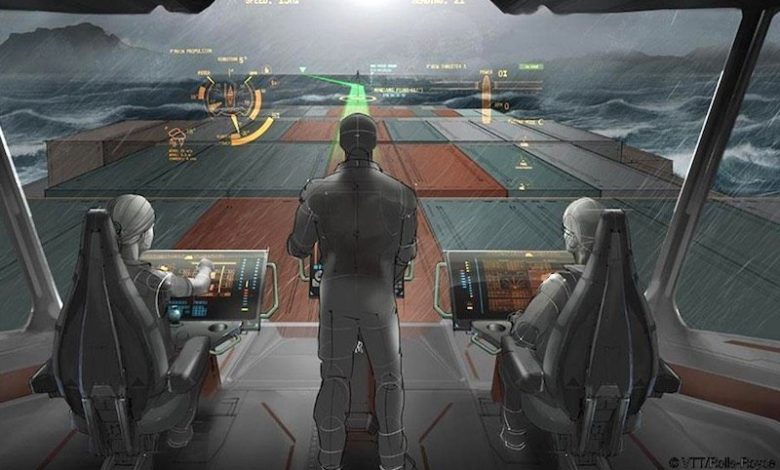Will software developers dominate the shipping industry? Part 1

Simon Beechinor from maritime consultants Strathmay Maritime kicks off a two-part contribution asking some tricky questions about the future of maritime operations.
Jalopnik’s Justin Westbrook reported recently how when Hurricane Irma pounded Florida, Tesla remotely upgraded select Tesla owners’ cars to expand their mileage capacity in an effort to help people evacuate and escape from the path of the storm.
Westbrook writes that Tesla briefly sold a 60 and 60D trim level of its Model S and Model X vehicles. These models had 75 kWh battery packs installed, and were software-limited to have less range to artificially create a more affordable entry-level tier for buyers. Buyers still had the option to upgrade to the full capacity for a charge if they changed their minds, and Tesla would ‘unlock’ the capability via an over-the-air software update.
Clients applauded when Tesla remotely unlocked that extra capacity to give those vehicles a further 30-mile range boost so helping their owners escape the storm’s advance. However, it highlights an interesting prospect for the future of our maritime industries.
Thanks to Tesla we’ve just glimpsed a future of the potential for corporate software control over how we operate the machinery on board our vessels of the future. What, we might ask, are the implications for this level of ‘remote control’ in the maritime industries? With Hurricane Irma in mind, we are just starting to see scenarios arise where a manufacturer, or software developer, could become a key decision maker in the operation of businesses about which they know nothing or, more threateningly, aspire to know something to enter a market.
As our vessels become more advanced and reliant on third-party software systems that can be controlled from anywhere, our own local control over those systems may well diminish. Actual ‘control’ will be held remotely by the manufacturer or software developer.
Increasingly it seems likely that we’re going to see a software developer or manufacturer’s machinery equipped with remote control functionality. It follows that maritime users will need to pay to unlock and use capacity. In other words, we’ll see much of the potential of our equipment being locked behind paywalls that could cost shipowners many thousands of dollars to unlock.
We can only begin to contemplate the myriad ‘What If’ situations that could arise.
What if a software developer chose to unlock, or perhaps keep locked, the hidden capacity of onboard software systems without proper regard for the vessel owner or the prevailing operational environment? What could happen if the software developer did that in the full knowledge of what it was doing in an attempt to manipulate a market or control a business stream?
What if a software supplier, acting independently of shipowners, sought to manipulate a market by adjusting onboard capacity for, say, engine speeds, pumping rates or crane capacities? Remote alterations, for a fee, to a vessel or class of vessels could quickly affect suitability of those vessels to carry cargo or perform specific operations and could affect competition on local spot market or time charter decisions and rates.
If a software developer was bought out by one of our competitors, could those competitors deny the option to adjust capacity on our vessels by keeping it locked behind the paywall just when the vessel owner or operator wanted to release capacity to deliver an enhanced service?
What will happen if the new software owners’ interests were malign or politically and geographically detached from the scenario in play? What legal jurisdiction would apply and how would jurisdiction transfer as time passed by? If the owner of a new ship selects a level of remote software control options over machinery, how will those options transfer to any subsequent vessel owner or operator and how might vessel values be affected?
Maritime operations, and shipboard emergencies in particular, offer perfect scenarios to contemplate ‘remote corporate control’. When we ask how autonomous vessels will be designed to handle both routine and emergency situations we can all probably think of many questions like those above yet, for now at least, we have few answers.
